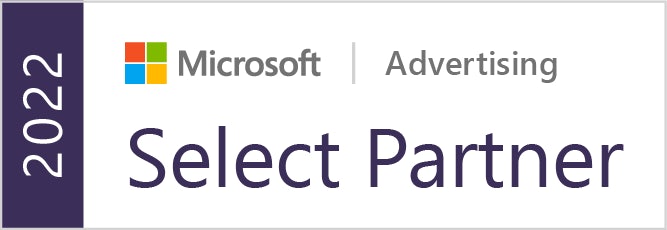As we’ve experienced the dominance of technology in lifestyle over the last few decades, digital industries have grown from mere underdogs into the most profitable industries globally.
Within this, we’ve seen the rise of entirely new disciplines that initially weren’t even a twinkle in Larry Page’s eye, but today provide the livelihood for everyone in my office. Specifically of course I’m referring to SEO, but also the subsequent applications that come from it; in this instance, Digital PR.
Digital PR has changed drastically since it’s inception. There are still discussions within the industry itself over what constitutes as PR vs link-building, how far it goes and where the line is. We relentlessly debate this matter of the ‘link spectrum’ within our own team and in many ways, there isn’t a right answer.

In my opinion, this is exciting and positive; as an industry we’ve learnt to be reactive, innovative and consistently open to new ideas. We have to learn from each other because there aren’t any books. Digital PR remains to be one of the most collaborative and adaptive industries I’ve ever worked in, which is only further indicative of it’s constant evolution.
So, on that note, I wanted to look at exactly what has changed over the last decade. And you might ask (here comes a phrase my boss says a lot) just how can we measure that?
..by speaking to the people who have been in the heart of it throughout the evolution of course; the digital PR OGs.
So I asked the industry gurus, “how has the Digital PR industry changed?” Here’s what they said.
Rebecca Moss, Digital PR Manager, JBH

Rebecca has been in the game since 2011, and discussed how link building was just part of SEO and it was definitely about quantity over quality until Penguin came along.
“In the office, behind us, we had a whiteboard with columns for each of our names. By Friday, we knew we had done a good job if we had ‘acquired’ a full column of links by 5:30pm. If you managed to get a link on an exact match domain, you were the SEO master, for sure. Then of course, the Penguin update waddled into our lives (through every fault of our own) and we were smacked with a manual action penalty, meaning that we had to clean up both our backlink profiles (through rounds of disavow files and reconsideration requests) and our acts, quick sharp. Enter digital PR and outreach.”
Did it change much? At first, digital PR was just a tactical evolution of link-building, claims Rebecca.
“I didn’t actually realise digital PR was ‘a thing’ until much later, truthfully, it was just a way to get more links on the whiteboard. The majority of the ‘digital PR’ work at this time was done via market research surveys, which is where we learned to pull headlines, angles and key stats to create a story that would entice even the most serious of journalists. The finished press release would be sent out as an exclusive to our ‘hit list’, then more widely distributed via an industry specific newswire. Then, we’d wait for the coverage to roll in. Easy. We might even make a infographic if the design team were feeling generous.”
But does this still work today? I think we all know the answer to that..
“Fast forward to today, where we can’t rely on a survey of 2000 UK residents to get the job done anymore. Data itself is still key to many of the campaigns I work on today and the skills I learned digging through all of that data to ‘find the story’ are still completely relevant. This does make me question exactly how much of an evolution there has been in terms of skill set and distribution techniques.”
Chris Lee, CEO/founder, Eight Moon Media

Chris discusses the dodgey tactics that he still sees in the industry with his insight as both a PR and a blogger. I actually deliberated setting up my own blog in the past so I could have this level of insight (and blag free products all the time), but judging on his experience, I’m not sure it sounds worth it..
“As someone who’s on both sides of the PR coin – I am both a digital PR consultant and technically a micro-influencer via my football culture blog and podcast, Outside Write – what concerns me most is the dubious nature of many approaches I still receive, despite moves against it. I can tell a pitch from a good digital PR and a bad one straight away: The good agency is often looking for a collaboration – there’s rarely an overt request for a link at first contact – while I find bad link-building agencies often come straight out with an approach that’s neither relevant or personalised, and are clear they want the link. I am often just offered a link exchange.”
Surely that doesn’t work?
“I refuse all inappropriate approaches, but in an era when influencer relations is under so much scrutiny, it’s critical that our industry maintains standards to rebuild trust. Link building and brand awareness goals should be achieved with creativity and long-term media and influencer relationship building, not the old – and outlawed – way of doing things.”
Some valid points from Chris. On the flip side, something that surprises us in our team is the amount of publications asking for payment for links or coverage. I’m not talking about advertorials, but specific responses to genuine outreach claiming that for a small fee you can have a “followed link which isn’t marked as paid”. Seems a bit sneaky. Some industries are worse than others. Does anyone else face this issue a lot?
Laura Hogan, Director, Jelly Bean

Laura spoke to me about how the industry has got more difficult, and how she misses the days when blogger reviews were enough. I’d be inclined to partially agree – in many ways the competition has ramped up with more people entering the discipline and there being more content available everywhere. Personally I don’t think these things are negative changes though. More people, and thus talent, joining the industry simply means more people to learn from. And when it comes to more content – an abundance of it means we have to be more intelligent than ever in order to be heard over the noise.
“When I started my SEO career in 2011 I was focused on outreach and sending bloggers products in exchange for a review containing a specific anchor text link,” says Laura. “I’d be arranging around 20 reviews each week, so we had a considerable number of anchor text links coming in every month and we dominated the SERPs. It was awesome as the cost per link price averaged £7.”
I think we can all agree that link building and outreach is harder than it was eight years ago.
“Then came the days when PR Web and similar services were all the rage and people wrote a press release for the sake of it because the site had such a strong DA and the article was spun out far and wide…. Again you’d get a large number of links easily, but these never drove traffic, whereas the blogger reviews did. You could easily upload guest blogs, as many sites allowed you to create an account and self submit. Forums and comments had great value, you could obtain a high link numbers each month without costs. As we know Google changed all this.”
Laura seems to agree with me that today we have to be far more tactical with our approach.
“Today’s outreach is a lot more sophisticated,” she claims, “but it can make links harder to achieve for smaller budget clients (albeit not impossible). We’ve changed our mentality too as it’s not about anchor text or link numbers, we care (rightly so) about the traffic and revenue value of a link. I must admit though, I miss the days of blogger reviews where giving a product was enough!”
If only it was easy as providing an expert comment on the evolution of digital PR, aye?
Hana Bednarova, Digital PR Specialist, Bednar Communications

Hana echoes that of the other experts, how digital PR was never a separate discipline to SEO.
[Digital PR] is the perfect mix of good PR tactics and good SEO tactics.
“When I started working in Digital PR (no-one really called it Digital PR then, it was outreach). Digital PR was simply a part of SEO. It was one of SEO tactics and very far from actual PR. Since then a lot changed. Digital PR is forming its own industry. It’s still somehow part of SEO and those two should be working together very closely, but it has found its place and it’s growing stronger and stronger.”
I hear this discussion a lot across the industry, and there’s still a lot of deliberation on where Digital PR sits as a separate entity to SEO, or whether it’s still a solid limb connected to it. We have our own industry conferences and many agencies sell digital PR contracts without an onpage element, so personally I think (perhaps controversially) it’s fair to claim our own ground.
Luke Davis, SEO Executive, Impression

Luke reiterates that SEO as a whole has evolved significantly in the 8 years he’s been in digital marketing.
“There have been a lot of Google updates, the most notable being Penguin and major steps to reduce black hat tactics.”
Luke was also keen to point out how SERP features have impacted the link-building landscape as well.
“There’s also the introduction of rich snippets – which has sent a lot of SEOs into a frenzy to get them – and more thoughtful link building strategies, which has helped foster better engagement and a collaborative attitude within the community not seen as much previously in my opinion.”
Robyn Gravestock, Senior Digital PR Executive, Builtvisible

Robyn mentions that previously digital PR was all about building links at scale, but now there’s so much more to it, which I think we can all agree with.
“Traditional PR is about reputation management and building a mutually beneficial relationship between an organisation and the public, Digital PR should be treated no differently.”
I really agree with the broader benefits of digital PR approach that Robyn discusses, including referrals and conversions from the right audience. Personally, I think this should always be taken into consideration in every digital PR strategy.
“While links from arguably irrelevant websites would still be beneficial in the sense of brand exposure and SEO to an extent (if the sites were trustworthy enough), it’s likely these links would have very little to no impact on the metrics that can make a tangible impact on revenue and sales e.g. referral traffic and conversions. A successful Digital PR campaign should essentially put your company or your client in the right place, in front of the right audience at the right time – producing useful content with a relevant target audience at the forefront of the idea is key.”
Damian Summers, Digital PR Specialist, Impression

I was interested in hearing the thoughts of our newest member of the digital PR team, who has a different slant on the question as he’s come from a traditional PR background. Damian was keen to talk to me about the evolution of traditional PR into the data-driven digital discipline. I think it’s equally as important to highlight the influence that digital PR has had on traditional PR landscape, as agencies begin to merge the two and those which aren’t tying their PR success into tangible results struggle to keep up.
Damian has worked in PR now for nearing on three years, with a lot of traditional experience and a scattering of digital campaigns under his belt as well. He’s recently taken the ‘full plunge’ into Digital PR and he said to me he thinks it’s only a matter of time before others join him.
“I don’t own a business and I don’t have any of my own money riding on generating sales or leads. But, I know if I did and I had invested in PR, when presented with a ‘reach’ and ‘AVE’ (Advertising Value Equivalent) figure at the end of a campaign, I would be asking myself, what exactly does this mean for my business and what have I got for my money?”
Anyone here know anyone who still uses AVE to report to their clients? Asking for a mate.
“I could tell you about how important brand awareness is and mentions are all day long, but they’re simply not enough anymore. Marketing teams and business leaders are getting savvier, younger and more in touch with tech, the pressure is becoming more intense and the competition much more fierce – they need to see results.”
It’s an exciting time to be in a discipline that is continuing to develop and grow at such speed, and if you haven’t taken the plunge yet, ask yourself why?
“Luckily for them, Digital PR can go a long way to achieving and contributing to this, we can see exactly how our work impacts on the success of a business and what this means for their investment. Long gone are KPIs that just demand headlines and column inches, we’re living in a different time, a time where KPIs are more particular, and a history of headlines and new appointment releases is only going to sell your services to a certain few. By all means we need to retain the key practices of Traditional PR, these cannot be left behind – we are still PRs, not just link builders.”
Summary
So, if we consolidate the jist of all the thoughts, I think it’s fair to claim that:
- Digital PR has grown up and away from it’s older sibling SEO, carving out it’s own separate discipline
- Outreach is more of a challenge today, but we see better quality and more rewarding results
- Results today are more relevant that ever: showcasing the brand rather than building links for links sake
- We’ve learnt an increasing amount from traditional PR, and I think we still have a lot to learn from each other
- Traditional PR has been heavily influenced by the rise in digital PR – the lines between the two are becoming blurred
- There are still dubious tactics going on, but we’re always learning a lot on best practises from each other
- It’s still changing and evolving! What a time to be alive.
Any more thoughts on the matter? As I said earlier, our opinions are what makes this industry (and indeed life) great, so I’m always keen to hear more. Send me all your questionable thoughts and feelings to @Impressiontalk
Peace✌️





